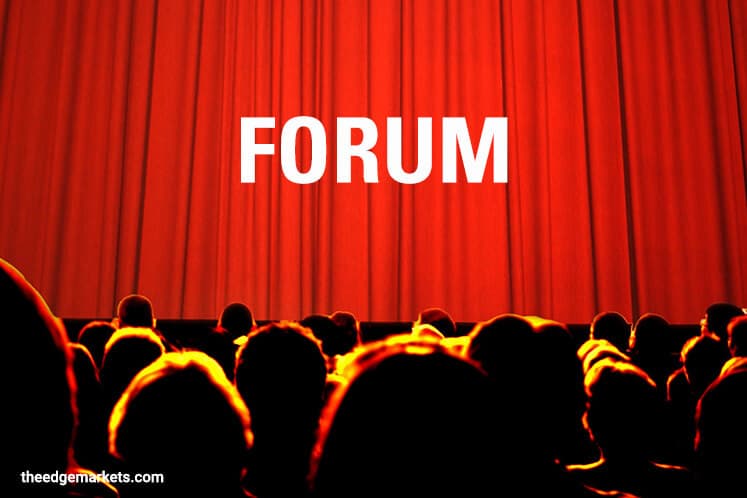
This article first appeared in Forum, The Edge Malaysia Weekly on January 1, 2018 - January 7, 2018
We usher in 2018 with the knowledge that the 14th general election (GE14) will definitely be held this year. I have a special New Year wish — to see a GE14, and politics as a whole, without extremes.
Today, we face a heightened politics of extremes. I am well aware that as voters go to the ballot box, their main concern will be bread-and-butter issues, such as the rising cost of living, unaffordable housing, low pay, and high rates of unemployment and under-employment.
What I am addressing is the political spin —hate spin — manufactured and employed by political campaigners to subconsciously influence (and in some instances, indoctrinate) the voters. Examples of this include raising the issue of a Muslims-only launderette, claiming that Muslim women cannot take photographs in a non-Muslim shop, and saying Muslims cannot wish others Merry Christmas, Happy Chinese New Year or Happy Deepavali, or mourn the death of non-Muslims. Muslims should also not elect non-Muslim candidates, only a Malay can become prime minister, and to have a Cabinet made up only of Malay-Muslims are other examples of such spin.
To paraphrase academician Cherian George, this kind of narrative has negative impacts that are electoral (fear-mongering as a winning campaigning strategy), social (marginalisation of religious minorities) and ideological (banning of books and art that challenge dominant narratives).
Malaysians are already feeling the negative consequences. We are in dire need of a better political narrative — one that reflects the true Malaysian history, culture, future aspirations and spirit.
My take is that Malaysians want a better Malaysia, and to advance, prosper and be happy.
But this will not be realised through political campaigns based on religious and racial extremism.
To counter such extremism, we at Institut Darul Ehsan are working on a two-sides-of-the-coin project: firstly, Fiqh (jurisprudence) of Peaceful Coexistence, and secondly, Multiracial and Moderate Political Thought.
Fiqh of Peaceful Coexistence is important because we have to address issues involving Islam and Muslims, who form the majority of the population, on how they interact and cooperate with others and with society at large. This is a continuation of previous important projects, for example, Amman Message (which emphasised understanding among the different school of thoughts in Islam); A Common Word (understanding between Muslims and Christians); and The Marrakech Declaration (the rights of religious minorities in predominantly Muslim communities).
Muslims should take a reformist’s (three-step) approach to religion — referring to the texts/sources, evaluating the different views of scholars and interpreting based on the context in which we live — so that religion is relevant to today’s life. We should be able to comprehend the notion of “one religion, various interpretations, many cultures” — so that we can fully and actively integrate and participate constructively and positively in politics, democracy and in other areas.
We should practise religious freedom and respect people of other faiths who practise their religion or belief peacefully and harmoniously. All Malaysians should be recognised as brothers and sisters, with “full citizenship”. The term ummah (society) should include the Malaysian ummah, and not just be limited to the Muslim ummah. The term ukhuwah (brotherhood) should include brotherhood in citizenship and humanity, and not be limited only to Islamic brotherhood.
On the other hand, multiracial and moderate political thought is important in putting an end to the politics of race. Our political contestation is generally about securing the support of the majority (Malay) and the minority (non-Malay) bumiputeras, and mediation and compromise with other ethnic groups in a power-sharing model. This model is called consociationalism — an elite cooperation between the leaders of different communities.
The politics of race will result in what political scientist Arend Lijphart describes as “societies that are sharply divided along religious, ideological, linguistic, cultural, ethnic or racial lines into virtually separate sub-societies with their own political parties, interest groups and media of communication”, which will bring in its wake racial discrimination in many areas of life. We must work on an alternative model — “centripetalism, which is multiracial and moderate.
According to academician Benjamin Reilly, centripetalism is “a political system or strategy designed to focus competition at the moderate centre rather than the extremes”.
It comprises three facilitating components:
• The presentation of electoral incentives for politicians to reach out and attract votes from a range of ethnic groups other than their own, thus encouraging candidates to moderate their political rhetoric on potentially divisive issues and forcing them to broaden their policy positions.
• The presence of multi-ethnic arenas of bargaining such as parliamentary and executive forums, in which political actors from different groups have an incentive to come together and cut deals on reciprocal electoral support, and perhaps, on more substantial policy issues as well.
• The development of centrist, aggregative and multi-ethnic political parties or coalitions of parties capable of making cross-ethnic appeals and presenting a complex and diverse range of policy options to the electorate.
It is most unfortunate that the Election Commission, through the current delimitation process, is introducing more seats dominated by one race instead of having more mixed-race seats.
In effect, it is strengthening the politics of race.
Let us join hands in stopping all kinds of religious and racial extremism in politics.
Datuk Saifuddin Abdullah is chief secretary of Pakatan Harapan and director (Strategic and Social Development) of Institut Darul Ehsan. He is active on Twitter: @saifuddinabd.
Save by subscribing to us for your print and/or digital copy.
P/S: The Edge is also available on Apple's AppStore and Androids' Google Play.